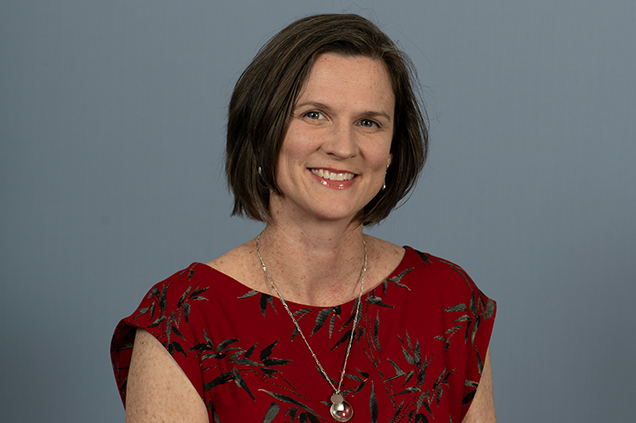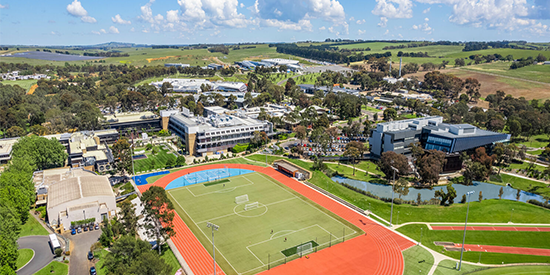Deakin scoops NHMRC Clinical Trials scheme funding
Research news
Summary
- Deakin’s Professor Craig Olsson and Dr Alyna Turner have each received funding through the 2023 National Health and Medical Research Council (NHMRC) Clinical Trials and Cohort Studies scheme.
- Dr Turner’s project aims to support Australians to return to work after a stroke.
- Professor Olsson’s project will examine health and ageing in one of Australia’s longest running population studies of human development.
Two new Deakin University projects – led by Professor Craig Olsson and Dr Alyna Turner – have received more than $5.1 million in funding through the 2023 National Health and Medical Research Council (NHMRC) Clinical Trials and Cohort Studies scheme.
The scheme supports high-quality clinical trials and cohort studies that address important gaps in knowledge, leading to findings that can be implemented for the benefit of Australians’ health.
Executive Dean for the Faculty of Health, Deakin Distinguished Professor Rachel Huxley, says Deakin’s successful projects highlight Deakin’s capability in delivering impactful clinical trials.
‘Deakin continues to lead the charge in transformative clinical trials, turning research into real-world impact,’ Deakin Distinguished Professor Huxley says.
‘Many congratulations to Professor Olsson and Dr Turner and their teams on this success and their ongoing efforts to drive Australian health breakthroughs.’
Enhancing work participation after stroke
Supporting regional and rural Australians to return and stay at work after stroke is the aim of Dr Alyna Turner’s newly funded project.
‘More than 10,000 working-aged Australians are diagnosed with a stroke every year. There is evidence to show that returning to work after a stroke is often associated with better physical and mental health outcomes,’ Dr Turner says.
Dr Turner’s project, based at TRIALS within the Institute for Physical and Mental Health and Clinical Translation (IMPACT), will conduct a trial with almost 200 Australians of RESET, a telehealth service designed to improve work ability after a stroke.
Backed by $2,928,425.50 in NHMRC funding, Dr Turner and her research team will explore if RESET has the potential to transform post-stroke vocational support and improve long-term recovery and survival.
Improving health across the lifespan
Lifespans have increased globally, but that doesn't always mean people enjoy longer periods of good health.
Professor Craig Olsson, Director of Deakin’s SEED Lifespan Strategic Research and Innovation Centre, will collect and analyse the data from one of Australia’s longest running population studies in health and development, the Australian Temperament Project which was established in 1983.
Thanks to $2,227,913.40 in funding, Professor Olsson and the research team will examine the earlier life social determinants of health and pace of ageing in middle and later life, as well as across generations.
‘Our findings will significant potential to inform new targets for early preventative healthcare across generations designed to extend lifespans and healthspans,’ Professor Olsson says.
‘We hope this work will help to promote healthy ageing across the life course and contribute to the World Health Organisation’s vision of “adding years to life and life to years”’.
About Dr Alyna Turner

- A fully registered psychologist and an endorsed clinical psychologist.
- A Senior Lecturer and Director of TRIALS and the Clinical Interventions Theme within IMPACT.
- Research focuses on mental health and comorbidity, spanning stroke and heart disease, CVD risk behaviours, depression, anxiety, substance use and psychotic illness.
Visit Dr Alyna Turner’s Deakin profile.
About Professor Craig Olsson

- Director of Deakin’s SEED Lifespan Strategic Research and Innovation Centre.
- Scientific Director of the Australian Temperament Project which aims to better understand the social determinants of human health and development.
- National Co-Convenor of the Australian Research Alliance for Children and Youth (ARACY) Longitudinal Studies Network.
- Founding Scientific Lead of the Melbourne Children’s Research Institute LifeCourse Initiative
The text of this article is licensed under the Creative Commons Attribution (CC BY) 4.0 International license. We'd love for you to share it, so feel free! Please note that images, videos, graphics and logos are not covered by the CC BY license and may not be used without permission from Deakin University or their respective copyright holder. If you have any questions please contact researchcomms@deakin.edu.au. Thanks for reading!
You can find more stories like this at https://www.deakin.edu.au/research/research-news-and-publications. We ask that Deakin University and individuals are appropriately credited and that you include links back to this website. Quotes in this article can be extracted for other articles provided individuals are appropriately credited and you include a link back to the article URL.
Share this story

Key Fact
Two Deakin health researchers have received $5.1 million in funding from the National Health and Medical Research Council.
